5 Books for Thinking Parents
This post may contain affiliate links.
One morning while channel surfing, I stopped on a morning show to listen to a woman talking about my daughter. Well, not exactly . . . but exactly.
She described kids who preferred to observe, who didn’t like to make eye contact, who get overwhelmed in social situations, who enter new situations slowly . . .
The guest, Dr. Marti Olsen Laney, an expert in introversion, was talking about introverted children, or “innies” as she called them.
It felt like divine intervention — that was my kid, AJ!
Reading her book, The Hidden Gifts of the Introverted Child: Helping Your Child Thrive in an Extroverted World, changed my life. I finally understood my daughter. I finally stopped thinking there was something wrong with her.
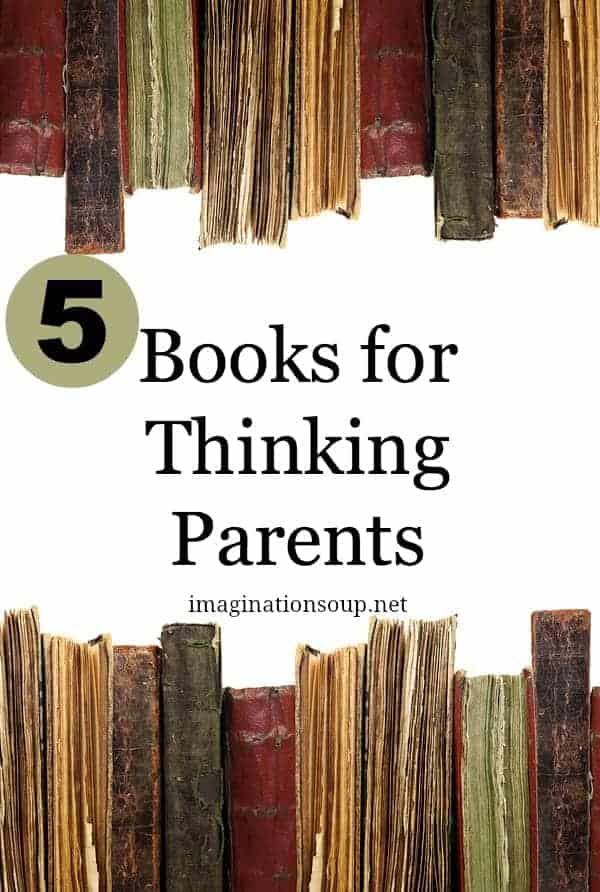
If you’re looking for books that will change you, here are five I recommend.
1. Swagger
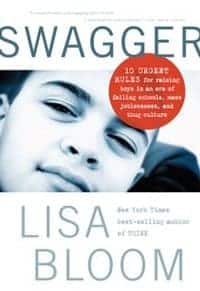
Swagger: 10 Urgent Rules for Raising Boys in an Era of Failing Schools, Mass Joblessness, and Thug Culture
strong> by Lisa Bloom
Did you know that in reading boys fall behind girls in all 50 states in all levels of K-12? Or that the majority of African American and Hispanic boys drop out of high school? Or that boys spend more time with their dads watching sports on TV than they do actually playing together?
Lisa Bloom, author of Think, mother of two, lawyer, and legal analyst for Avvo.com, shows us the stark reality of life for boys right now. Then, she offers specific rules for parents, solutions that anyone can do, even if you’re not a parent of a boy. Read my full review this week on Class Notes. (Read the Introduction here.) It’s one of my new favorite books for parents and educators.
(Parents, you’ll love her “How to Talk to Little Girls” essay, too.)
2. Creating Innovators
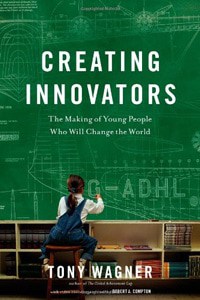
Creating Innovators: The Making of Young People Who Will Change the World by Tony Wagner and Robert Compton
Creating Innovators is “about how we can develop the capacities of many more young people to be creative and entrepreneurial.” Building on his previous book, The Global Achievement Gap, Wagner explains that it’s not just about having particular skills but innovative thinkers need the essential qualities of “perseverance, willingness to experiment, take calculated risks, and tolerate failure, and the capacity for “design thinking,” in addition to critical thinking.”
I loved this book from start to finish, particularly how Wagner looks at case studies of innovators — their childhood, education, and life experiences. Watch for an excerpt later this week.
3. From Bad Grades to a Great Life
From Bad Grades to a Great Life! By Dr. Charles Fay
The title is an unfortunate choice because his definition of a great life and achievement isn’t what I thought it would be. Plus the cover art . . . But, never the less, it’s a great book. Fay’s guiding principal is this: the wealth children need isn’t good grades in school but compassion and character. Sprinkled through the book are doable “Love and Logic Experiments” for parents such as one of our favorites: (AJ does her homework in the morning.)
If your child has become resistant to homework and refuses to talk with you about school, experiment with chancing course:
Sweetie, I forbid you from doing your homework each afternoon . . . until you’ve charged yourself up by first doing something you’re really good at. I’ve learned that successful people focus most of their time doing what they do well This charges their batteries so that they have the energy to work on things that they don’t find so easy.
4. 100 Easy Wacky Crazy Activities
101 Easy, Wacky, Crazy Activities For Young Children by Carole H. Dibble and Kathy H. Lee
Okay, this probably won’t change your life but it might make it more fun! It’s filled with fun and easy play ideas for kids. You can just flip through and pick an idea in seconds.
Example: Ooey Gooey “Put cornstarch in a large tub or sensory table. Let children play in the dry cornstarch, experiencing the texture and consistency. Next, let children add water to the cornstarch. Encourage children to describe what happens. Talk about the change in the texture and consistency. Notice, it feels firm to pick up and then seems to melt in your hands. . . . Try adding dry tempera to the cornstarch or liquid tempera to the cornstarch and water.
5. Powerful Interactions
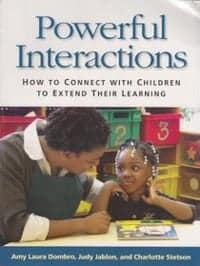
Powerful Interactions How to Connect with Children to Extend Their Learning by Amy Laura Dombro, Judy Jablon, and Charlotte Stetson
Although this is written to guide early childhood educators, it can help parents, too. The authors define powerful interactions as intentionally connecting with a child, building trust and security which opens the door to guidance and instruction from you. Doesn’t that sound wonderful?
Connecting is all about being present with each individual child.
Extending the learning is helping the child go to the next step in her learning. (Very Vygotskian!) You can help children see themselves as thinkers in this step.
Tips from the book:
Be a mirror. Let children know you see and hear them. Reflect their actions and language back to them:
“That baby looks very comfy in the cradle. You gave him a pillow, a bottle, and his blanky!”
Be a rubber band. Stretch the child’s play a little bit:
Introduce another prop: “You know, we have a tutu in the classroom. Would you like to wear it as you dance.”
Be a steering wheel. When the imaginative play goes in a direction that might not be appropriate, take on a role that allows you to redirect the play in a more appropriate direction:
“Oh, my, Teddy doesn’t know about manners, does he? We’ll have to teach him the polite way to say that. Do you want to teach him or should I?“
Which One First?
I think you will find something beneficial in each one of these books.
More Books I Recommend on food, imagination, and outside; on movement, motivation, reading, and parenting; on parenting; on bullying, reading & brain research; on creativity and outside play; on education advocacy; on keeping kids safe from predators. On Class Notes: 10 Best Books for Thinking Parents.
Which book will you’ll start reading?


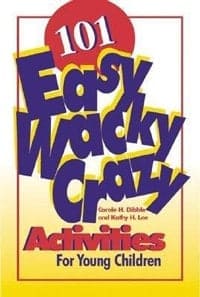


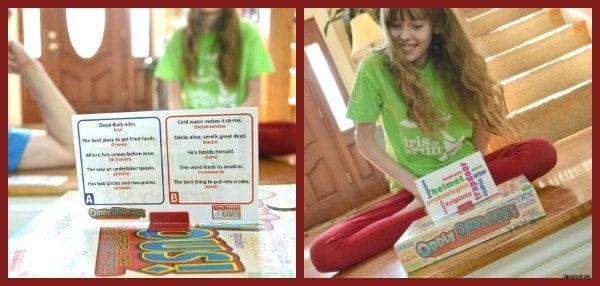
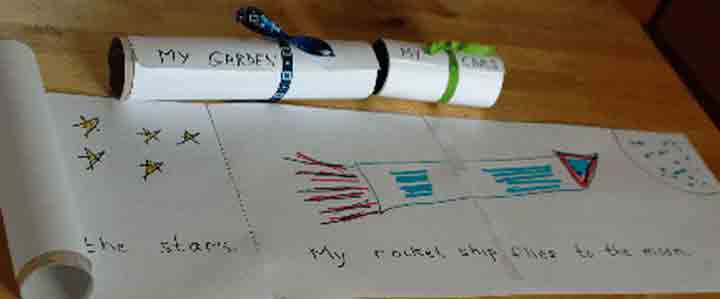
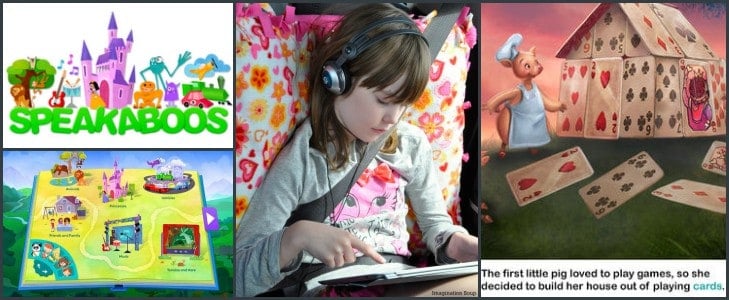

Thanks for the recommendations. I added all of the books to my TBR list but I immediately ordered Creating Innovators from the library. I always love your suggestions.
Thanks for these book suggestions. These look great. This one fascinates me: Creating Innovators The Making of Young People Who Will Change the World by Tony Wagner and Robert Compton
I think this is what the U.S. needs to focus on in terms of education though we have to do this as parents. Teaching our kids to take risks, tolerate and learn from failure, and harness and nurture their creativity. That’s powerful stuff!
My husband and I are both entrepreneurs and I think teaching kids to become entrepreneurial is a gift that keeps on giving.
Great post! I’m not sure which one I’ll start with, but I now have most of them on my library list. I may start with Swagger. Having two boys, I’m always wanting/needing to learn more about the experience of today’s boys.
I am always looking for way to be a better parent. Thank you for these recommendations.
Melissa,
Thank you! Just what I was looking for so I can start some new books for my summer reading.
I always love your suggestions.
Alida